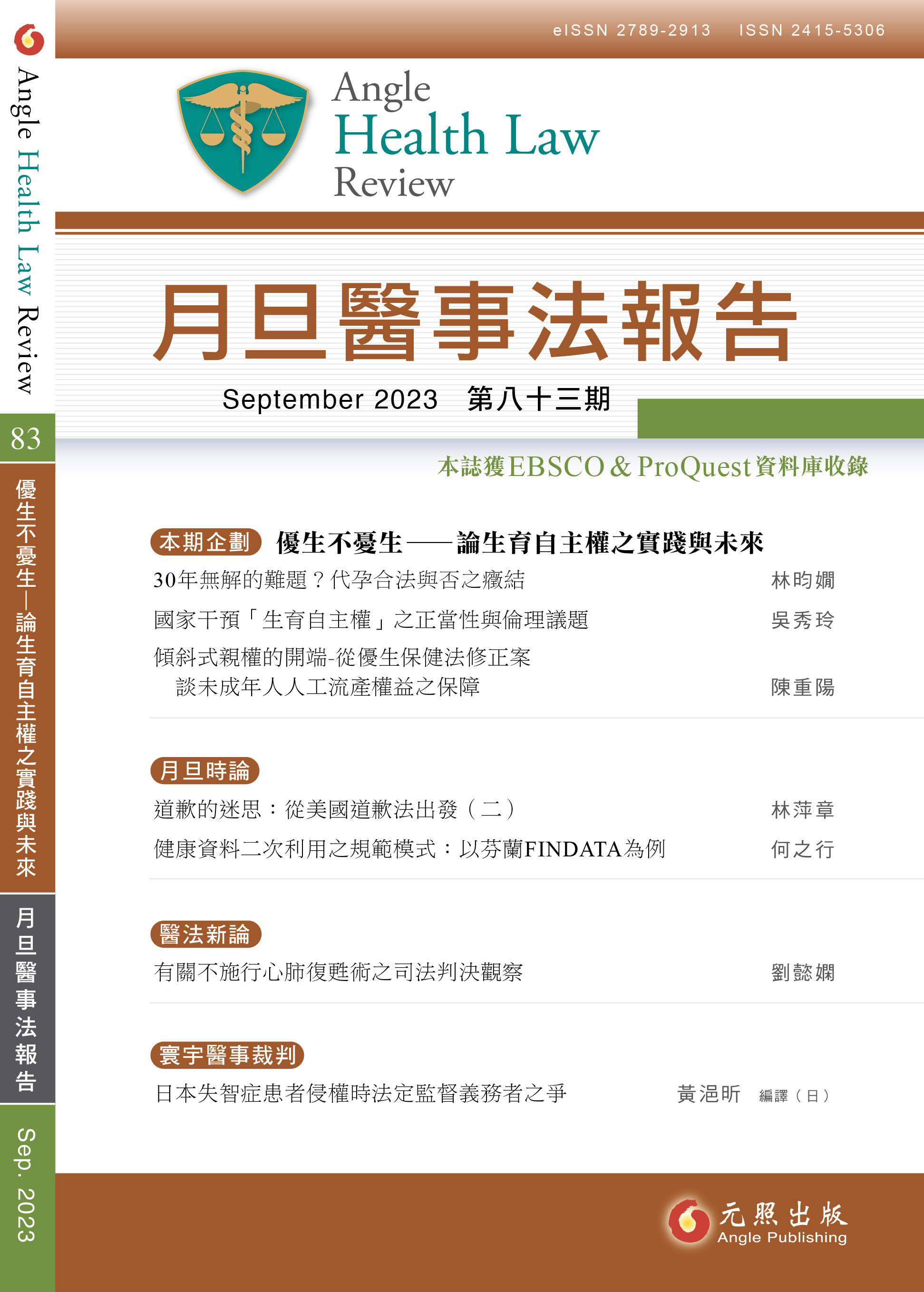日本失智症患者侵權時,法定監督義務者之爭【寰宇醫事裁判】 試閱
Disputes on Statutory Supervisors for the Dementia Patient in the case of Torts in Japan
失智症患者A於其配偶與長媳不注意時外出,進入原告X鐵道公司之車站內而與行駛中列車相撞身亡。X向A之家屬提起損害賠償訴訟,主張A之配偶與兒子為民法規定之法定監督義務者或準監督義務者。二審法院認為,基於精神保健福利法的保護人制度以及配偶間互負照顧義務,配偶乃法定監督義務者;惟A之兒子非監護人,亦非保護人,故非法定監督義務者。三審法院認為,保護人與監護人制度已經修法而不能援引,且從配偶照顧義務也不能推導出其為法定監督義務;又斟酌配偶與兒子的實際狀況,亦無從課予準監督義務。
A, a dementia patient, went out when his spouse and daughter-in-law were not paying attention, entered the station of a railway company as the plaintiff X and made himself be killed in a collision with a train in motion. X filed a lawsuit for damage against A’s family, claiming that A’s spouse and son were statutory supervisors or quasi supervisors according to Civil Law. The court of the second instance held that the spouse is the statutory supervisor due to the guardianship system according to Mental Health Act and the mutual duty of care between the spouses. However, A’s son is neither a guardian nor a guardian, and therefore is not a statutory supervisor. The court of the third instance held that the guardianship and the supervisor system had been amended and couldn’t be invoked, and the spousal duty of care couldn’t be inferred to be a statutory duty of supervision. Furthermore, both the spouse and the son have no quasi-supervisory duty in matters of their actual situation.
082-089






